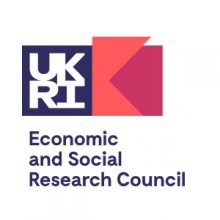

Festival of Social Science 2022
2022 marked the 20th Anniversary of the ESRC Festival of Social Science, and the University of Surrey delivered a variety of engaging and fascinating events.
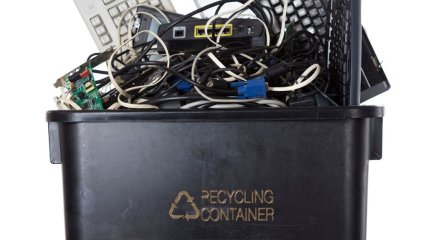
Host: Giulia Berlusconi, Lecturer in Criminology at the University of Surrey
This one-hour interactive event included talks about the impact of improper disposal of old electronics, the illicit trafficking of electronic waste, and the options to safely dispose of electronic waste.
The event helped to raise awareness about the impact of improper disposal of old electricals such as phones and computers and provided suggestions on how to make sure they are disposed safely. Participants learned about the options available when disposing of an old electronic device and the impact that improper disposal might have at the global level.
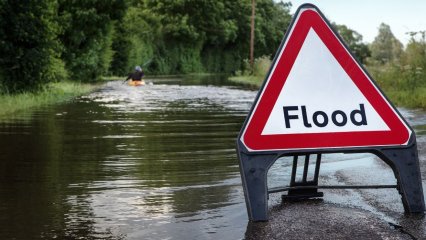
Host: Professor Amelia Hadfield, Founder and Former Co-Director of the Centre for Britain and Europe, Politics, University of Surrey.
This event included a panel session featuring high level panellists and a series of brief presentations and participatory public debate with active audience interaction throughout. The event explained and debated issues of wider sustainability in Surrey, with particular focus on the work being undertaken by Surrey County Council and the Environment Agency in developing an exciting new Thames flood prevention scheme.
This event was designed to target directly questions of localism and sustainability in Surrey, and the research and planning undertaken by key local and governmental stakeholders focusing on the new Thames flood prevention scheme. The panellists and audiences alike came away with a clear idea of the rising risks that flooding poses to key areas of Surrey, the wider sustainability challenges facing Surrey in general, and the responses put forward by the University of Surrey alongside Surrey County Council, and the Environment Agency.

Host: Dr Benjamin Gardner, Reader in Psychology at the University of Surrey
2022 has brought extreme heatwaves, heightened global energy insecurity concerns, and huge rises in energy bills. While we recognise that addressing these problems requires a broad, societal approach, most of us can make changes to our everyday behaviours to reduce our energy use, energy bills and carbon footprint. This session will draw on insights from behavioural science, and the psychology of habits, to provide tips on how to make lasting changes to our day to day lives to save energy and money. Attendees can expect to gain greater insight into their own behaviours, and learn not only which specific behaviours they might change, but also how to change those behaviours most effectively.

Hosts: Melissa Hamilton, Professor of Law & Criminal Justice, University of Surrey, Emily Setty, Senior Lecturer in Criminology, University of Surrey, Ioana Enany, University of Surrey (OSCAR) and Glenn Moulton, University of Surrey (OSCAR)
According to a 2019 survey conducted by the charity Brook, more than half of UK University students said that they had experienced unwanted sexual behaviour ranging from receipt of explicit messages, groping to rape and sexual violence.
This event explored how to understand and navigate issues that may arise regarding active consent to sexual activity on university and college campuses. It is not always easy to identify when consent is given freely, knowingly, and by a person who has the capacity to consent, and experts dispelled common myths and assumptions oriented around ten things to know about sexual consent among young people.
Some of the questions explored were:
- How can we work together to create a “consent culture” on campus?
- How do colleges/universities respond to reports of sexual misconduct on campus?
- How do we empower students to report incidents?
- How do alcohol and drugs relate to consent?
- What is the influence of differential power dynamics?
- What are the risks posed by a “hook-up” culture?
- How does digital media play into sexual interactions?
- Has the Me Too! movement gone too far . . . or not far enough?

Hosts: Nicholas Kitchen, Director, CGPC, University of Surrey and Joshua Andresen, Director, CGPC, University of Surrey
This in person event featured a roundtable session with presenters taking turns to showcase how the war in Ukraine impacts people's lives through multiple dimensions. Insights were gained into dimensions such as effects on national security, cyber-attacks, critical infrastructure, business risk, energy prices, food prices, geopolitics, national identity, economic sanctions, alliance politics, international law, and the environment.
Russia's invasion of Ukraine has fundamentally disrupted the European security order. But its impact is not confined to geopolitics: in fact, those geopolitics impact directly on our everyday lives in myriad ways, both direct and indirect. By bringing together experts from different fields, Surrey's Centre for the Study of Global Power Competition aimed to encompass the multiple dimensions of contemporary strategic competition.

Host: Ciaran Gillespie, Lecturer in International Politics, University of Surrey
Participants were invited to attend a curated space filled with a number of seated areas with VR headsets in order to watch an immersive documentary “Clouds Over Sidra”. The first 45 mins of the event will consisted of attendees using a number of VR headsets to watch the film, followed by a 15 minute presentation and 30 minute discussion with the audience.
The UNICEF produced film 'Clouds Over Sidra' documents the experience of a young Syrian refugee and her experience of life in a Jordanian displaced persons camp.
This event:
1) provided an interesting, immersive experience of life at the front one of the most protracted and dangerous civil conflicts in recent history
2) provided an opportunity to experience immersive media and reflect on what it does and how it makes you feel. If future media is to become more virtualised and immersive, what potential impact does that have on how people gain information about global events, and is this for better, or worse?
Hosts: Dr Tracy Xu Senior Lecturer Hospitality Tourism & Events at the University of Surrey and Dr Anke Winchenbach Lecturer Hospitality Tourism & Events at the University of Surrey
There are currently around 3.5 million women over 50 in the UK workplace. A significant number of these working women will experience menopause symptoms that can, in some cases, be debilitating and have a significant impact on their work and personal lives. Symptoms can severely impact both physical and mental wellbeing at work and at home.
Through this event, we explored how best to support employees managing menopausal symptoms.
We discussed:
- What is menopause, what are the common menopause symptoms?
- How are employees affected at work due to symptoms of the menopause?
- Why is the menopause a workplace issue?
- How can a menopause friendly workplace be created?

Host: Dr Anke Winchenbach Lecturer Hospitality Tourism & Events at the University of Surrey
In this 90-minutes online event, we explored the ways in which fishing and tourism co-exist in coastal communities. An expert panel of researchers and practitioners shared their experiences and insights about the fishing industry, social change, marine tourism diversification and how this relates to local people's lives and the wider Blue Economy. This provided participants with the opportunity to ask questions and reflect on what opportunities might exist to strengthen the relationship between fishing and tourism, and what actions and support might be needed to put this into action engaging in conversation between diverse stakeholders from across the marine and coastal sector to jointly explore the challenges and opportunities for people living and working around the coast.
Diversification into tourism is often suggested as a potential solution for the increasing concerns over the declining fishing opportunities in the UK as well as internationally. As such transitions are neither easy nor necessarily straightforward, this session aimed to expand current discussions on social change and livelihood transitions in coastal communities by hearing a range of different perspectives on what it means when fishing meets tourism and how these encounters can be mutually beneficial.
Festival of Social Science 2021
2021 saw us deliver a month of events for the first time! From 1 -12 November our events aligned with COP26, exploring themes of climate change and the environment. Thereafter we explored a variety of societal topics and challenges, some big some small, but all relevant to public audiences young and old.
Take a look through the programme below for more information and links to event recordings.

Host: Claire Mascall, Post Graduate Researcher, Centre for Environment and Sustainability, University of Surrey.
At a time when the provision for environmental awareness for young people should be at an all-time high, opportunities for young people to develop environmental understanding, to connect with nature and to act to address environmental problems remain limited. While the popularity of outdoor learning and green schools continues to rise in primary education, secondary schools still face significant barriers to engaging young people with their environment.
This event springboards from the idea that there exists a moral obligation to empower young people and provide them with opportunities for climate action, to learn for sustainability and to re-connect with nature in supported, adult-guided contexts.
Attendees were invited to bring their experiences and personal perspectives to engage in a creative workshop and develop research-based ideas on inspiring opportunities for young people. Teachers, outdoor and environmental education instructors, young people, parents and anyone with an interest in the area were invited to attend.
The event explored diverse education and learning environments and the role that adult leadership plays in these contexts. Topics included nature experiences for young people and how these might – or should – differ from the experiences of younger children, how the characteristics of green space might impact young people’s experience (i.e. urban, wild or community gardens for example), and how teaching practice can engage and motivate young people in environmental action.
Following an overview of the Environmental Citizenship project based at the University of Surrey, attendees were encouraged to think about and discuss the significance of green spaces and the potential for improving connections with nature, as well as the difficulties faced in providing high quality environmental learning for young people. The event included video clips and a hands-on creative activity to inspire discussion. The aim of the session was to bring different perspectives together and to connect attendees to a wider network of people interested in environmental understanding for young people.
If you missed the event you can watch it on our YouTube channel.

Host: Dr Emily Corrigan-Kavanagh.
The event emphasised the significance of creating technologies to support future homes for wellbeing, such as through Artificial Intelligence (AI), through a series of poster and technology demonstration pitches, organised tours to the MyGlobalHome Innovation Centre and an expert panel discussion. There was also the opportunity for attendees to pose their questions to a panel of experts on how new, sustainable technologies can be adopted in the home, and the particular wellbeing benefits that might be welcomed from home tech in years to come. The event ended with a soft drinks reception, providing additional time for attendees to discuss thoughts and ideas to demonstrators, poster presenters and speakers surrounding what is important to them when it comes to technology usage at home.
The event highlighted the importance of designing sustainable technologies that induce wellbeing in the home environment, and the kinds of technology, including Artificial Intelligence (AI) that might be possible in future. We discussed the potential for connecting information and understanding to create homes that look after their occupants and not the other way round! We looked at how to improve communication between the different smart technologies present in people’s homes, which can offer targeted insights for a broad range of health conditions. Beyond implementing smart devices that can monitor and automate, we sought to create environments that are able to analyse context-rich data to provide more valuable insights. This will be incredibly helpful in monitoring anything from serious underlying health conditions to general fitness in home occupants.
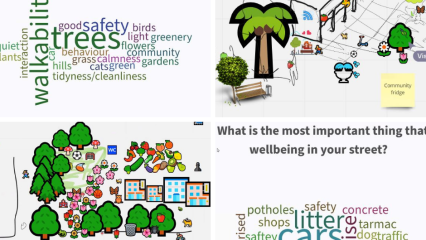
Hosts: Professor Birgitta Gatersleben, University of Surrey, Dr Eleanor Ratcliffe, University of Surrey, Dr Melissa Marselle, University of Surrey.
This interactive online event gave audiences an opportunity to think about how they would re-imagine their local neighbourhood to be healthier and more sustainable.
Despite our hopes, the COVID-19 pandemic has restricted movements outside the home for a significant portion of yet another year. It is a time when we changed a lot of our behaviours and spent a lot of time close to the home, walking on our local streets or maybe taking up cycling for the first time in many years. As we make this move back to normality, it is a perfect time to reflect on how our relationship with our neighbourhood streets has changed and how we can learn the lessons of this pandemic to build back better.
The audience heard short talks about the various ways city streets can influence our health and contribute to environmental sustainability from members of the Environmental Psychology Research Group at the University of Surrey. After this, they engaged in an online workshop activity where, in groups, they designed the most healthy and sustainable neighbourhood you can imagine.
The event aided discussion about the design of our city streets and how it influences our day-to-day experiences and behaviours. Some streets may discourage health behaviours that would benefit the person and the environment, like walking and cycling.
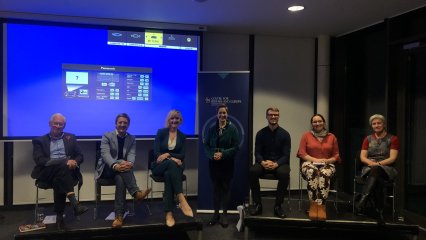
Hosts: Professor Amelia Hadfield, University of Surrey (Panel Chair) and Dr Alia Middleton, University of Surrey.
Panel speakers
- Professor Graham Miller - Pro-Vice-Chancellor and Executive Dean of the Faculty of Arts and Social Sciences, Professor of Sustainability in Business, University of Surrey
- Katie Stewart - Executive Director for Environment Transport and Infrastructure, Surrey County Council
- Philip Riley - Vice-President of The Basingstoke Canal Society
- Dr Erica Russell - Doctoral Practitioner, Centre for Environment and Sustainability, University of Surrey
- Will Hitt – Undergraduate Student and President of the Politics Society, University of Surrey.
With COP26 highlighting the rising prominence of the environment and sustainability on the political agenda, this collaborative event between the Centre for Environment and Sustainability and the Centre for Britain and Europe showcased cutting-edge research on climate action and the transitions needed for Net Zero and wider sustainability.
This event built on recent county-wide policy commitments (Surrey County Council’s climate plan and Greener Surrey strategy; the new Surrey Climate Commission; the University’s Net Zero plans amongst others) to explore what it will take to engage the whole community of Surrey – citizens, businesses, public bodies and NGOs – in decisive action on the linked climate and nature crises. Drawing on expertise in policy, polling and community, the panel offered vital insights into policy implementation and public responsiveness. It emphasised the ongoing deep commitment the University of Surrey has to understanding societal impact and community leadership.
At a time when the UK was hosting a major global conference on Climate Change, COP26, this workshop aimed to pick up on topics under discussion and includes a bitesize appraisal of what has been discussed, the salience of the UNCC and likely steps the Government will take going forward. The workshop targeted a wide section of the community including those actively engaged in the local environment, but crucially those who understand the roles and responsibilities of the local community in changing society. The audience heard first-hand about research being undertaken by the Centre for Britain and Europe and the Centre for Environmental Studies, in vital areas of sustainability against a backdrop of local, national and international discussions on sustainability.
Host: Dr Nikolas Thomopoulos, School of Hospitality and Tourism Management.
The Ready2Drive project at The University of Surrey aims to address the attitudes of individuals aged 60+ about driver training needs as people get older. This proof-of-concept research is developing testing and evaluating relevant scenarios through a video survey, distributed in the UK. Its academic contributors come from the Department of Tourism and Transport, The Digital Lab, DIGMY, the Faculty of Health and Medical Sciences and Nervtech, who are working on the simulation algorithms for the project. We invited members of the public aged 60+ to participate in our online video survey, and they then joined us for a focus group to give their feedback, along with other members of the public who were interested to learn more about these technologies, and our findings.
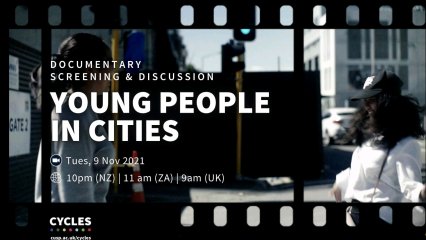
Host: Professor Kate Burningham.
Hosted by the University of Surrey (UK) in partnership with Canterbury University (New Zealand) as part of the 2021 ESRC Festival of Social Science—this event offered audiences an opportunity to watch the preview of two new short films which gave insight into young people’s lives in Christchurch, New Zealand and Makhanda, South Africa and to talk to the film director and research project leads.
The films were made by award winning filmmaker Amanda Blue to accompany the international CYCLES project which is running in the Centre for the Understanding of Sustainable Prosperity (CUSP).
The project is working with young people aged 12-24 across seven international cities, discovering the issues that are important in their ability to live well and sustainably in urban environments.
Amanda’s films are an accessible and compelling introduction to some of the concerns and priorities for young people in Christchurch and Makhanda and provide an inspiring basis for a wider discussion with the audience about what’s needed to enable young people to live well within urban environments.
Cities are at the fore of sustainability challenges of the twenty-first century, and many are predominantly youthful spaces. Understanding young people’s experiences in urban environments is therefore important as we strive to achieve both the Sustainable Development Goals and the Paris Agreement.
The international CYCLES project seeks to understand the lifestyles and aspirations of young urban residents and to share their ideas for living well within environmental limits. CYCLES research is taking place in London, UK; Christchurch, New Zealand; Dhaka, Bangladesh; New Delhi, India; Sao Paulo , Brazil; Makhanda, South Africa and Yokohama Japan.
For enquiries, please email events@cusp.ac.uk. Follow the CYCLES project with #YoungLives7Cities on Twitter.
You can watch the recording of this event.

Hosts:
- Professor Melissa Hamilton, Professor of Law & Criminal Justice, University of Surrey School of Law
- Noël Busch-Armendariz, University Presidential Professor, The University of Texas at Austin
- Steven Hicks School of Social Work Partnering with the Institute on Domestic Violence and Sexual Assault
- Dr Christine Barter, Professor of Interpersonal Violence Prevention, University of Central Lancashire
- Margaret Bassett, Director of Applied Research & Innovative Instruction, The University of Texas at Austin
- Caitlin Sulley, Director of Research and Operations, The University of Texas at Austin.
This workshop provided innovative information and tools to enhance coordinated efforts towards assisting victims of sexual assault while holding offenders accountable. The audience heard from experts in the field on best practices in criminal justice and community engagements with sexual assault cases and we showcased video clips from a professionally developed series of educational videos to further promote key messages.
The event explained common impediments to properly evaluating and responding to allegations of sexual assault. Attendees received information to assist them in better understanding common tactics of perpetrators and the reasons victims may not act as one might as expect. We discussed how to assess whether consent was fully and voluntarily given, offered guidance on how to assess the role of alcohol and drugs, and provided advice on how potential victims and their supporters can navigate issues of assessing safety if attempts are made to end the relationships.
We explored how the neurobiology of trauma can explain confusing behaviour along with common tactics in selecting vulnerable victims and hiding evidence. The workshop aimed to improve understanding and mutual response to sexual assault for members of public in the community, community organisations, academic experts, authorities, and justice professionals, and offered proven suggestions on workable solutions.
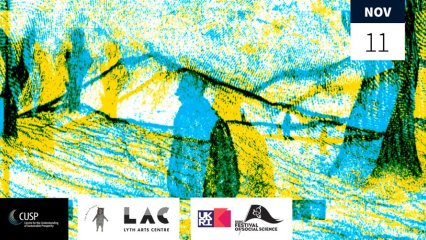
Host: Dr Malaika Cunningham.
This event—hosted by Lyth Arts Centre in partnership with The Bare Project and CUSP at the University of Surrey (UK) as part of Creative Carbon Scotland’s Climate Beacons for COP26 and linked into the 2021 ESRC Festival of Social Science— was designed for local people in the Caithness area, who are interested in land justice, the role of language in our relationships with land, and contemporary performance.
What does a reciprocal relationship with land look, smell, feel, sound like? If we try to move beyond ownership and extraction—or even conservation—how do we then relate to the hazel-shaws, aps’tgu’j, and móinéar**?
Whilst the COP26 conference was in full-swing in Glasgow, The Bare Project (a theatre and interactive arts company) together with CUSP met at Lyth Arts in Caithness, the UK’s most northerly mainland arts centre, to understand ancient relationships with land that may help guide our future.
We worked with crofters, linguists, a herbalist, academics, a filmmaker, and a fiddle player to get to grips with the languages of land that have been all-but lost to British colonialism, and post-industrial capitalism.
This installation was part of a broader project called The People’s Palace of Possibility, a long-form arts and permaculture project which took off via the postal service during the lockdowns of 2020, and will culminate in a community-owned food forest in South Yorkshire.
The live audience were invited to explore the many rooms of The People’s Palace of Possibility, each with a different invitation for conversation or play. The piece featured an audio artwork including the voices of local people on the theme of their relationships with land. As part of the installation we also shared a meal created from locally grown and foraged ingredients.
A film screening of this creative project will be made available in February 2022.
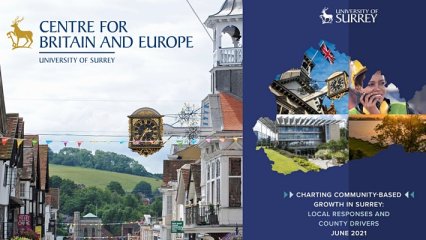
Hosts:
- Professor Amelia Hadfield, University of Surrey
- Dr Alia Middleton, University of Surrey
- Stakeholders from Surrey local government
- Key local decision makers
- Community representatives.
In a post-Covid environment there is a profound need to understand how Surrey as a county is going to evolve. This event launched the 'Charting Community-based Growth in Surrey' report from the University of Surrey's Centre for Britain and Europe. The event expanded on this highly acclaimed report into the local area, the role of growth and its different definitions and applications, and why growth needs to be genuinely community based.
There is a real appetite amongst decision makers to hear what the local community think. The pandemic has made us look afresh at the special qualities and strengths of Surrey, including its people, communities, economy, natural environment, globally significant location, clarifying how we can continue to grow, and remain successful, attractive and competitive, nationally and globally. This event harnessed the value of this report by discussing with the public how we should choose to collectively use it, and translate it into actual delivery.
Surrey County Council, and a number of local and national decision makers considered the county's future journey in rejuvenating the high street, developing employment and skills, ensuring inward investment, and growing the green economy. The event engaged with the challenges of health and wellbeing in all areas of the county. We discussed how to implement the key opportunities identified for fostering a place based localism for our community. The audience had the opportunity to engage with our panel of guests and give input to the issues raised.
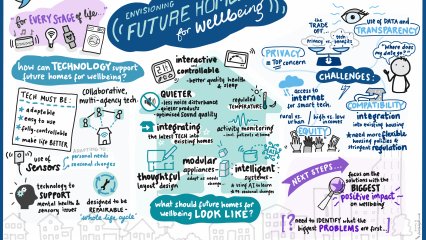
Host: Dr Emily Corrigan-Kavanagh.
This online event gave audiences an opportunity to shape what future homes for wellbeing might look like by contributing to a “world café” style online discussion session. Topics from emerging conversations were then recorded as a beautiful digital visual by a graphic artist and sent to all attendees to bring together and commemorate everyone’s contribution.
We kicked off with a short presentation of innovative technologies for home wellbeing to inspire follow-up conversations on “What should future homes for wellbeing look like?” and “How can technology support future homes for wellbeing?” with other attendees in small Breakout Room groups.
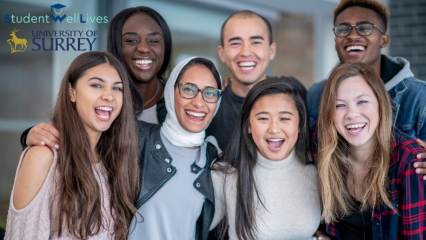
Hosts:
- Dr Kieran Balloo, Research Fellow in the Surrey Institute of Education at the University of Surrey and Co-Investigator of the Student Wellbeing and Life Outcomes Project
- Dr Anesa Hosein, Senior Lecturer in the Surrey Institute of Education at the University of Surrey and Principal Investigator of the Student Wellbeing and Life Outcomes Project.
Thinking about going to university next year, or maybe you have just started? Have you thought about your mental wellbeing? Have you thought about how your university environment might affect your mental wellbeing? Have you thought about how your social identities may also contribute to your mental wellbeing at University?
In this FOSS event we explored these issues with researchers from the Surrey Institute of Education investigating these questions in our ‘Student Wellbeing and Life Outcomes Project’ (#StudentWellLives), which has been funded by the Economic and Social Research Council (ESRC).
The workshop focused on the possible reasons why different students experience mental health issues, and how they can get better support during their time at university. This was an interactive event appealing to prospective students, current students, and their parents or guardians.
We hosted the event using an interactive platform called Gather Town, designing a virtual space simulating different university types to encourage the audience to reflect on the role of the university environment in students’ wellbeing.
In one of the activities at the event, participants were shown video clips of hypothetical stories of young people entering university. Working in groups, they then chose how to complete these hypothetical journeys of mental wellbeing, such as through a performance, a story chain, or a drawing.
We came together and discussed how these hypothetical students’ lives might be enhanced through making different decisions as they progress through university.
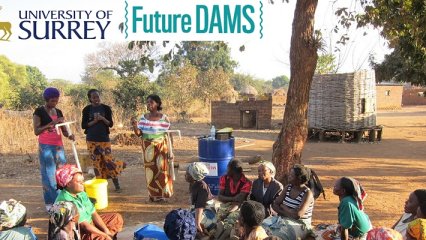
Hosts:
- Dr Kavin Narasimhan, Research Fellow (FutureDAMS), University of Surrey
- Dr Roshan Adhikari, Research Fellow (FutureDAMS), University of Manchester
- Sarah Redicker, Doctoral Student (FutureDAMS), University of Manchester
Governments, corporations, and businesses around the globe must act quickly and unwaveringly to tackle climate change. Simultaneously, the role of citizens and communities in empowering climate wise sustainable development is also important but often overlooked or implemented poorly.
A case in point is community-based water management (CBM), which aims to allow end users to manage and share water resources equitably, effectively, and sustainably. CBM is central to effective water resources management irrespective of political ideologies and yet, studies show that very few models have achieved sustainable success.
Communities are the backbone of our nations. They have a central role in the global fight against climate change. And yet, communities seldom have the support, training and inputs necessary to manage and use resources sustainably.
Our online event brought together international researchers, water management experts and community representatives to explore what types of shocks affect community-based water management, what adaptation and mitigation measures are needed to manage shocks and restore stability, who are the external actors (Governments, civil society, NGOs, donors, etc.) and what can they do to equip communities to manage shocks. It was dubbed by one speaker to offer, "The detail that was not discussed at COP26."
You can watch the event online to explore the important topics shaping the role of citizens in the global fight against climate change.
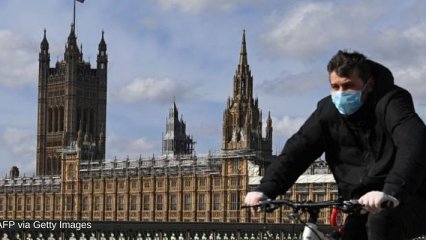
Hosts:
- Professor Amelia Hadfield, University of Surrey.
- Dr Steven van Hauwaert, University of Surrey.
- Dr Theofanis Exadaktylos, University of Surrey.
- Professor Tim Bale, Queen Mary University of London.
- Professor Ryan Carlin, Georgia State University.
The Covid-19 pandemic has had worldwide implications but the impact of this particular public health crisis is different to other recent crises the world has faced, as it goes beyond that of a sanitary or health crisis. The pandemic is a multifaceted and pluridimensional crisis, impacting on employment, the welfare state, immigration, economic growth, party political relations, the prevalence of polarisation and extremism, inequality and many more social, political and economic aspects of contemporary society.
Key speakers from the Department of Politics at the University of Surrey gave a set of presentations that highlight how local, national and international political actors responded to various aspects of the COVID-19 crisis.
The event focused on topics such as; how policy responses to the pandemic developed in the UK compared with the rest of the world, how populist actors in the UK and Europe responded, how a pandemic affects government approval ratings and the challenges local policymakers faced, particularly in Surrey.
In addition, we shared our findings regarding populist responses to the pandemic such as how it affected Boris Johnson's approval ratings. This latter exercise, through the use of an interactive online tool, stimulated younger audiences, showing that 'playing with data' can be fun and politically relevant.
Those joining this event left with a number of key take-away messages and an understanding of how political science research is socially and societally relevant. We emphasised that even in times of crises not directly related to politics, the social and political implications are widespread and important to examine.
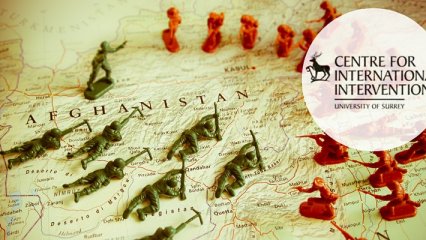
Hosts: Dr Nick Kitchen, University of Surrey and Alex Leveringhaus, University of Surrey.
This event will focus on the future of international intervention in light of the US’ withdrawal from Afghanistan this summer, as well as the rise of post-liberal politics in western states more generally.
The panel will include several academics from the University of Surrey's Centre for International Intervention, and policy practitioners who have researched and worked intervention since the late 1990s. They will reflect on what many feel went wrong in Afghanistan, as well as the prospect for international intervention going forwards. There will be plenty of opportunity for the audience to ask questions and contribute to this ongoing and very topical debate.
The US withdrawal from Afghanistan and the country’s subsequent fall to the Taliban in the summer of 2021 has thrown long-standing questions about the pros and cons of US-led interventionism into sharp relief. Although dissatisfaction with intervention has been brewing for a while, the fall of Kabul seems to symbolise the end of an era. That is, an era where humanitarian and counterterrorism goals became intertwined in a somewhat unhappy liaison and where the stabilisation and reconstruction of authoritarian post-conflict societies became an important policy goal.
But why did the Afghanistan mission fail? Were there arguments in favour of propping up the Afghan government? Do the scenes from Kabul airport mean that states will think twice about intervening? Or will they merely change their methods, relying on new technologies at their disposal (such as drones)? Will questions about international intervention be increasingly replaced by concerns for Great Power confrontation between the USA and China? Or will arguments about intervention become intertwined with Great Power competition – just as intervention became intertwined with the Bush administration’s War on Terror two decades earlier? What does all of this mean for post-Brexit Britain’s desire to remain an important regional and global military player?
These and similar questions were up for debate as part of this timely and interactive online event. Participants enjoyed a lively and engaging debate between experts on foreign policy, intervention, and humanitarianism, with plenty of scope for the voicing of audience opinion.
You can watch the event online via the website of the Centre for International Intervention
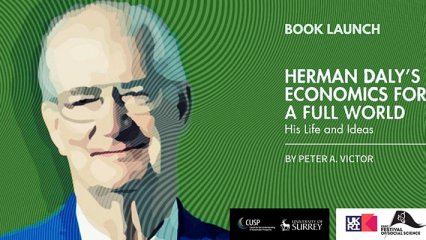
This event, hosted by the University of Surrey (UK) in partnership with York University (Canada) as part of the 2021 ESRC Festival of Social Science launched Peter Victor’s new book on the life and work of Herman Daly.
Speakers: Herman Daly, Peter Victor, Katherine Trebeck, Ellie Perkins and Tim Jackson.
The USA and UK, like so many countries, face a grave dilemma: how to regain pre-pandemic levels of economic activity and growth while reducing the already excessive environmental impacts of climate change, ocean acidification, biodiversity loss, and contamination of air land and water. The ‘code red alert’ of the most recent IPCC report on climate change exemplifies the seriousness of these problems but it is only one of several globally significant environmental threats crying out for attention. The dilemma is that a return to unending economic growth, especially in advanced economies, is unlikely to be the answer.
Herman Daly is one of very few economists who has devoted his entire career to resolving this dilemma. His economics for a full world has been widely recognised through numerous national and international prestigious prizes and awards. His pathbreaking work on the steady-state economy provides the foundation for new approaches to economics finding favour especially among younger people such as well-being economics, doughnut economics, post-growth economics and degrowth. Daly, born and raised in southern Texas is admired for the clarity of his thinking and expression as well as his kindly manner. He is a founder of ecological economics which views the economy as embedded in and entirely dependent on the biosphere. Nothing in economics could be more relevant to advancing our understanding of and finding solutions for the climate crisis and sustainability.
You can watch this event online.
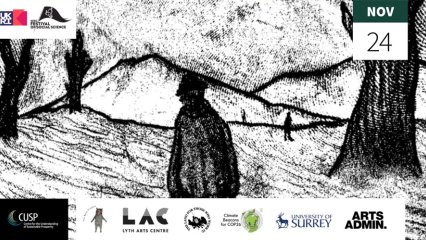
This event—co-hosted by CUSP at the University of Surrey (UK) and Artsadmin, in partnership with The Bare Project and Lyth Arts Centre, as part of the 2021 ESRC Festival of Social Science, was designed for people who are interested in land justice, the role of language in our relationships with land, and arts-based approaches to research and activism.
Whilst the COP26 conference was in full-swing in Glasgow, The Bare Project (a theatre and interactive arts company) and CUSP spent two weeks in the Highlands at Lyth Arts in Caithness, the UK’s most northernly mainland arts centre. Together with local crofters, foresters, artists, and young people, they questioned our ancient relationships with land, and how those relationships could help guide our future. While they were up there they discovered four giants, inspired by folklore, but created out of conversations and research into the more-than-mortal forces that control and shape our landscapes.
At this roundtable the audience met these four giants, heard their stories, and discussed how we can ourselves become giants, capable of building new, sustainable, and just landscapes. What do we need to play a more-than-mortal role in our landscapes? We also showcased some early cuts of a film created on this subject with filmmaker Regina Mosch.

Host: Moslem Boushehrian, University of Surrey.
Partners:
- The National Police Chiefs’ Council (National Hate Crime Problem)
- Surrey Constabulary (Hate Crime in Surrey)
- Hampshire Constabulary (Hate Crime Against Public Sector Staff)
- Stop Hate UK (Helpline and Support)
- Victim Support (Gaps in referral and support for victims of hate crime)
- CST (SAFE) (Securing and protecting minority community spaces)
- Rise Mutual (Restorative Justice)
- Solution Not Sides (Combating misinformation and promoting productive dialogue)
- Faiths Forum London (Combating hate crime through community cohesion)
- Refugym (Well-being Support for Refugees by Refugees)
- Stand Up! Education Against Discrimination.
This event discussed the boundaries of hate crime such as its national, local, and community impact, its harms and effects, and the available support and response for both its victims and offenders, as well as both current and future challenges.
What is considered a crime here and now may not be for another person in another place. Crime is socially constructed and hate crime is not an exception. The internet, social media and 24-hour news channels have wiped the geographic borders and barriers between different cultures, leading to the potential for people to do or tweet something that can be considered socially acceptable and normal no matter how controversial, and may cause outrage in another culture. This event explored how the development of media and exposure to it, can and has altered our understanding of what 'hate crime' is and we will explore various ways to collectively combat hate crime and support its victims.

Host: Dr Robyn Muir, Sociology, University of Surrey.
Princess culture shapes the lives and identities of girls and women, therefore the images we see are the only ones we can interpret. Understanding how children interpret these images is integral for creating change.
Dr Robyn Muir, from the Department of Sociology invited young children and their parents to reflect on representations of princesses in popular culture through an interactive activity online and explore important debates that arise from them.
The aim was to empower parents with their children to start to critically engage with the Disney Princess Phenomenon, along with wider media sources. Learning media literacy allows children to de-trivialise the trivial and build critical thinking skills. It also provides parents with a platform to critically engage with the content their children consume, together as a family.
This event explored what it means to be a princess. An icon in girl culture and wider childhood, princesses and their stories are a central part of development for children. With parents and children, Dr Robyn Muir from the Department of Sociology discussed what being a princess means, the qualities of a princess, and what that means for us as a society. Themes ranged from identity to body image, encouraging the building of media literacy skills. The event was held online on a Sunday to make it easier for families to attend along with a free gift posted to every child!
Dr Robyn Muir is a Lecturer in Media and Communications at the University of Surrey. Her research focuses on the images of femininity within the Disney Princess Phenomenon, focusing on how femininity has been constructed in film, merchandise, marketing, and consumer experiences. Her book, The Princess is the Political, is forthcoming with Bristol University Press and includes an in-depth feminist analysis of Disney Princess films, merchandise and consumer experiences. An avid Disney fan herself, Robyn uses her research as a platform to discuss important societal issues and encourage media literacy to empower consumers to demand change and diversity in the media industry.

Host: Dr Amy Burnett, University of Surrey.
The aim of this event was to deepen understanding of the relationship between politics and local governance that can affect sustainable outcomes. The session provided insights on how to reorientate local institutions towards environmental benefits and social wellbeing where these involve working with local councillors, planners or other community groups interested in positively shaping where they live. In particular, the event explored 'Flatpack Democracy', a local political movement that seeks to 'break the mould' of party-politics through the election of groups of independent councillors. We reflected on the experiences of Frome (Somerset) and other places replicating this approach and discuss the reasons for success and challenges in moving beyond party-political approaches. The event was informed by a survey carried out on the Flatpack 2021 National Campaign and research on stakeholder needs to monitor and evaluate climate and ecological emergencies. The session also aimed to inform debates on the future of politics and placemaking in the context of post-Brexit and post-Covid recovery and renewal.

Host: Dr Philip Jackson, CVSSP, University of Surrey.
Partners:
- Eleni Sharp, BBC Research and Development
- Professor Sabine Braun, University of Surrey
- Professor John Collomosse, University of Surrey
- Dr Jack Stilgoe, Associate Professor, University College London.
With an estimated five smart devices for every person on the planet, personal data and media have never been so readily accessible. Yet our personal experience of media, including social media, is for the most part mediated by a small number of global tech corporations.
Joined by BBC R&D, this panel explored digital rights, human values, trust and decentralisation as directions to advance society's ability, our ability, to shape the algorithms that feed our media. The session included presentations from speakers researching these themes and provide an opportunity for questions and discussion. It is hoped that their insights will enrich and inform a debate as part of society's ongoing conversation to design technologies for media personalisation that better serve the needs of society.
More and more data is available online, including our own personal data as our lives have become increasingly digital. Equally, the films, drama, music, news, sport and other entertainment we enjoy are in the throes of metamorphosis from broadcasting to streaming, leaving fixed physical media as the preserve of those with a special interest. With the booming global data economy, these create the conditions for new personalised services, including streaming platform recommendations, targeted advertising and social media. As well as the tech giants, governments and other industry sectors are waking up to the latent potential wealth in individuals' collective data. Regulation may help to curb injustices, but are there alternative ways for society to shape the way algorithms personalise the many forms of our media?
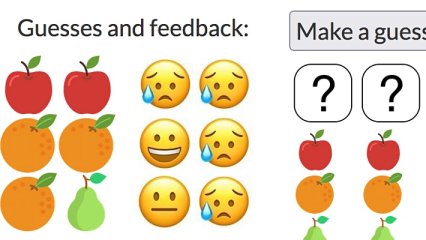
Hosts: Dr Jonathan Nelson, University of Surrey and Lara Betram, University of Surrey.
Who are smarter, people or machines? What is intelligence anyway? We learned about these issues while playing a code-breaking game, 'Fruit Salad Mastermind', in an interactive discussion with University of Surrey researchers.
In Mastermind, the challenge is to crack a hidden code, by making guesses and getting feedback. It is challenging to think of good guesses, and to make sense of the feedback that you receive. How people and computers identify good guesses, and make sense of the feedback, is a key issue for human and artificial intelligence.
Fresh from the Berlin Science Festival, Surrey researchers guided children, parents and teachers through the hands-on experience of playing Fruit Salad Mastermind online, trying to achieve the highest levels possible. They will brought their own experiences of the game to offer meaning and explained how this aids understanding of human and artificial intelligence.
They also discussed how Fruit Salad Mastermind can be used in schools as a fun experience to help children and young people learn about the mathematics of uncertainty including probability, entropy and information, and key principles in informatics.
Festival of Social Science 2020
The week-long programme of events offered a thought-provoking insight into some of the UK’s leading social science research and how it impacts our social, economic, and political lives.
Dr Amy Isham from the Centre for Understanding of Sustainable Prosperity, and Dr Helen Fitzhugh from PrOPEL Hub, led a workshop to explore what people from different walks of life think about the nature of the relationship between wellbeing and productivity.
Dr Susan Venn from the Centre for the Understanding of Sustainable Prosperity, has talked to residents, businesses, service providers, charities and local government about their experience of living in Woking and Hay on Wye.
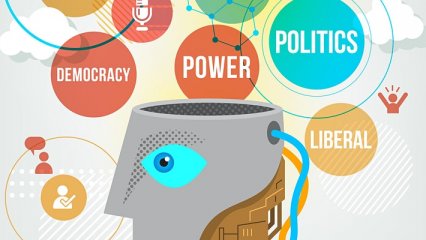
Dr Marton Ribary from The School of Law presented an event that considered whether we can create a more robust, ethical, and transparent Artificial Intelligence (AI) that we can trust and understand?
Senior leaders from both politics and law at the University of Surrey and beyond, explored this question through a live panel debate, as part of the ESRC Festival of Social Science.
The discussion considered technological, ethical, and societal aspects of AI methods which are consistent with democratic political ideals.
Two specific policy making challenges were debated:
- Can AI produce genuine transformations within the policy cycle and what this means for local governments delivering public services?
- If we see an end to the prevention of human rights, does this justify influencing election results with the help of new technologies?
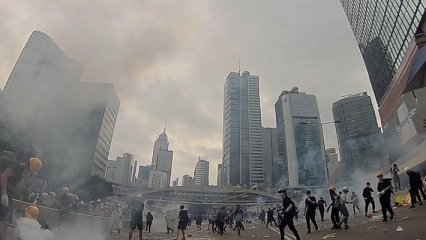
Dr Malte Kaeding from Department of Politics led a live panel debate, where extracts from his ESRC IAA funded documentary were shown.
This event launched the official trailer of “Black Bauhinia” (香港本色). This film crystallised one decade of Dr Kaeding’s research on social activism, identity politics and democratisation in Hong Kong, with his recent focus on the Hong Kong localist movement. After the trailer release, Dr Kaeding joined a panel with Ray Wong (one of the protesters whose story is featured in the documentary), Ben Rogers (CEO of Hong Kong Watch), and Natalie Bennett , Baroness Bennett of Manor Castle (co-chair of the All-Party Parliamentary Group on Hong Kong).
The panel discussed how to shape public debates through evidence-based advocacy and the creation of solidarity through empathy. Specifically, this drew on Malte’s participatory and editorial role in the making of Black Bauhinia, Ray’s personal journey in exile, Ben’s long-term professional advocacy work in Asia, and Baroness Bennett’s involvement in the Inter-Parliamentary Alliance on China.
The aim of this panel went beyond unpacking the complexity of Hong Kong’s situation to the public. More importantly, it evoked universal reflections about resistance against authoritarianism, the question of identity, the debate between structure and agency, and the meaning of homeland.
The production of ‘Black Bauhinia’ was funded by an ESRC-IAA grant and supported by the University of Surrey and Taiwan Foundation of Democracy.
Dr Yoo Ri Kim from Surrey’s School of Hospitality and Tourism Management considered the value and contributions of big data and digital innovation to the economic recovery of hospitality and tourism organisations post Covid.
With the COVID-19 pandemic, despite the different lockdown policies and restrictions within and across countries, there have been increasing demands for leisure activities, from domestic travel to eating out in your local restaurant. With the hospitality, tourism and retail sectors hit significantly from the pandemic, the recovery from COVID-19 is key for the survival and sustainability of the sectors.
Hack Hospitality was a series of events hosted by the School of Hospitality and Tourism Management at the University of Surrey, focussing on key research themes from digital technology to COVID-19 related research. Following on from the previous Hack Hospitality at Home: Hospitality, Tech, & COVID-19, this Festival of Social Science event focused on the hospitality, tourism and retail sectors, drawing on a number of research by Hospitality academics to explore the different digital solutions that could be adopted by the sectors for their post-COVID-19 recovery.
The event featured three areas of research:
- ‘Regaining customers in hotels and restaurants post-COVID-19’ by Dr Yoo Ri Kim, Dr Anyu Liu (in partnership with Mozee Limited).
- ‘Roles of technology in restaurant innovation driven by COVID-19’ by Mr Aarni Tuomi, Professor Iis Tussyadiah, Mr Mark Ashton.
- ‘Using technology innovation to attract hotel customers during and after the pandemic’ by Dr Hakseung Shin.
There was also an open discussion session for everyone to share their thoughts and ideas on the topic to discuss the future of digital innovation and solutions for how our sectors can recover and survive from COVID-19.
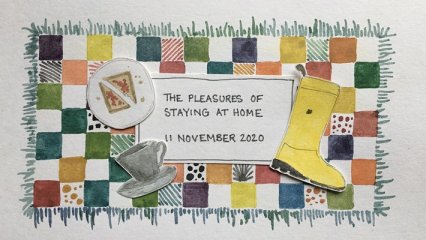
Dr Eleanor Ratcliffe from the School of Psychology looked at the positive environmental psychological experiences of being at home during the coronavirus lockdown.
2020 was the year to #stayathome, with COVID-19 restricting movement outside the home for significant portions of the year. Now, in autumn, the UK weather is increasingly cold, wet and dark. It's the perfect time to make the most of being indoors!
This online event was a mix of short presentations from academics at the University of Surrey, followed by interactive activities/discussion. Attendees received resources outlining evidence-based ways in which wellbeing can be maximised at home.
Topics and speakers:
- Sustainable homes of the future (Dr. Chris Jones)
- Happiness through favourite places in the home (Dr. Eleanor Ratcliffe)
- How to successfully work from home (Dr. Birgitta Gatersleben)
- Privacy and personalisation in your home (Ms. Sadhana Jagannath)
- The benefits of indoor gardening (Dr. Emma White).
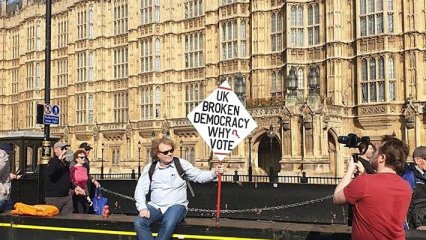
Professor Simon Usherwood from the Department of Politics and Professor Holger Breinlich from School of Economics and other colleagues tried to ‘make sense of Brexit.'
With the looming end of the transition period, Brexit remains at the forefront of our public and political debate. But a lot of what you hear is from partisans on different sides, more interested in selling their position than setting out what the plain facts of the matter might be. To help redress that, we offered the opportunity to pick the brains of some of the leading academic experts on this topic, during a night of question-and-answer from the heart of Guildford. With expertise in economic, political and legal aspects of the UK’s withdrawal from the European Union, we offered a response to all those burning questions that you’ve never felt you’ve gotten a straight answer to. And yes, sometimes that answer was going to be that we don’t yet know. So, no pitching for your vote, no being evasive, no hand-waving: just straight-down-the-line answers, to help you get a handle on all of it.
The panel included:
Professor Simon Usherwood: Working in the Department of Politics, Simon’s research has focused on the negotiations between the UK and EU, the practicalities of Brexit and the wider role of euroscepticism in the UK. He has been Deputy Director of the ESRC-funded “UK in a Changing Europe” programme, dedicated to sharing academic insights into the public debate.
Prof. Holger Breinlich: Holger is based in the Department of Economics, and has produced several key studies into the impact of Brexit on living standards, trade and general economic performance.
Dr Simona Guerra: Dr Simona Guerra works in the Department of Politics on various aspects of public opinion, EU politics and how people have experienced Brexit. She is also a member of the Centre for Britain and Europe.
#SurreyBrexitRoundtable
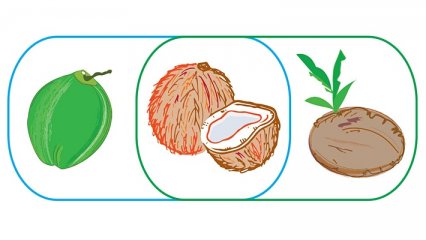
Michael Franjieh from the Surrey Morphology Group led a session about endangered indigenous languages and how they shape human thought and cognition.
We discuss several endangered indigenous languages in the Pacific Island countries of Vanuatu and New Caledonia. Each language has a set of classifiers, linguistic markers that categorise a person’s possessions into different groups based on how they intend to use them. For example, speakers have to say ‘I will drink my drinkable coconut’ or ‘eat my edible coconut’, where the italiscised words represent the classifiers. A speaker can use different classifiers depending on how they intend to use their coconut. Different languages in the South Pacific have different numbers of classifiers ranging from two to well over twenty.
Our online event revolved around the discussion of specially commissioned pictures of key local objects from the South Pacific by Isabelle Ritzenthaler, an artist based in New Caledonia who has illustrated many indigenous language story books. Isabelle, along with speakers of the languages of New Caledonia and Vanuatu discussed the cultural importance of what the images depict and how they would categorise them in their indigenous languages. Our team of academics discussed their recent research into how these linguistic markers affect thought and cognition.
We invited our online participants to have a go themselves with our online task to see how they would categorise the pictures and if their answers matched what speakers from the South Pacific did in our research study.
Finally, we wrapped up our event by inviting our attendees to a Q&A session.
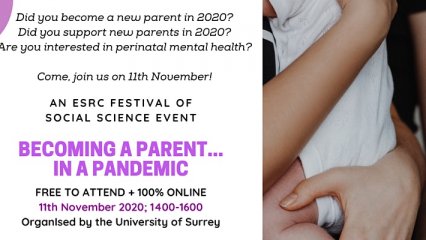
Dr Ranjana Das and Dr Paul Hodkinson from the Department of Sociology shared research on the impact of the coronavirus on new parents. Health visiting professionals and members of the public who themselves became new parents in 2020 were guest speakers.
Becoming a parent in a pandemic brought together new mothers and fathers with those who study, support and campaign for them, to shine a spotlight on the challenges and support-needs of those going through pregnancy, birth and post-natal life amid COVID19 and social distancing requirements.
Part of the ESRC Festival of Social Science, this online event was for new mothers and fathers (or those about to be), perinatal health practitioners, charities, campaigners and others with an interest in maternal and paternal wellbeing amidst COVID19.
Session on new motherhood amidst COVID-19 speakers:
- Farah Lunat: Lancashire Care NHS Trust and ROSHNI2
- Rosey Adams: PND and ME
- Ranjana Das: University of Surrey (A new mum of 2020)
- Kate Mattocks: University of East Anglia (A new mum of 2020).
Session on new fatherhood amidst COVID-19 speakers:
- Andy Mayers: Bournemouth University + Dorset MIND
- Kathy Jones: The Fatherhood Institute
- Paul Hodkinson: University of Surrey
- Simon Farewell: A new dad of 2020.
Discussion:
- Rachael Parker/Melita Walker: Institute of Health Visiting
- Elizabeth Duff: National Childbirth Trust
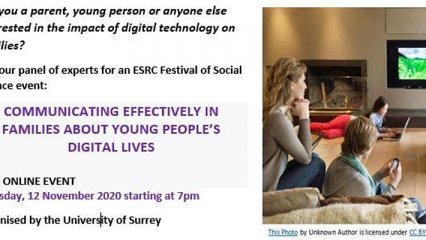
Dr Emily Setty from the Department of Sociology discussed how digital technology affects young people and her webinar explored the challenges of communication within families, in particular young peoples’ digital lives.
We welcomed parents and young people as well as anyone interested in how exposure to and involvement with the digital world affects young people and their families. Speakers drew on their knowledge and experience of working with young people, parents and schools to discuss the opportunities and challenges of the digital era for families and how families may want to understand and address the issues that young people face.
Speakers:
- Charlotte Robertson, Digital Awareness UK
- Leah Jewett, Outspoken Sex Ed
- Cynthia Crossley, Habyts
- Emily Setty, University of Surrey.
Discussant: Paul Hodkinson, University of Surrey.
Lockdown measures meant that families saw unprecedented impacts on the nature of young people’s use of and relationship with digital media, as well as on the norms, behaviours and forms of self-regulation that changed and developed throughout the Covid-19 pandemic.
Drawing on up-to-date academic evidence and the insights of the experts, the webinar looked at current and topical digital trends. It also explored best practice in terms of effective communication at home about young people’s digital lives and the challenges and barriers that both parents and young people can experience in speaking openly and honestly about the risks and issues (as well as the rewards and opportunities) of digital media.
The speakers shared their perspectives based on their work and the research evidence before responding to questions from the audience.
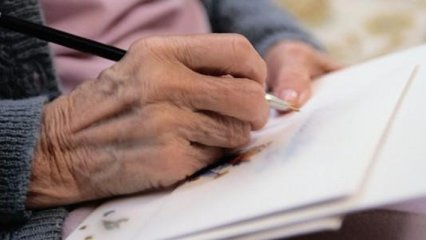
Richard Green from the School of Health Sciences invited people aged 65 or over who live alone to complete lockdown story postcards. Responses were presented in this virtual event and uncovered the needs of this community during these unprecedented times.
Researchers were keen to understand older peoples’ experiences during the Covid-19 lockdown, so they could inform future social science research and identify the needs of different communities in an ever-changing and unpredictable landscape.
This event reported on an activity inviting older people to submit postcards where they reflected on their experiences during the Covid-19 national lockdown that began in March 2020. It was a space to discuss and reflect on the impact of this significant event on older people's lives, and how older people's experiences are informing research interests and activities in the School of Health Sciences at the University of Surrey.
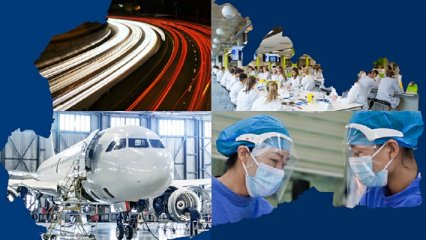
Professor Amelia Hadfield who heads up the Centre for Britain and Europe showcased work that her team have been doing to demonstrate the crucial link between academia, policy makers and industry ahead of launching her hotly anticipated report.
Commissioned by the Future Economy Surrey Commission, this comprehensive report incorporated detailed analysis and strategic recommendations gathered from key business, healthcare, aviation and knowledge economy stakeholders from across Surrey between June-October 2020.
Chaired by former Chancellor of the Exchequer, Philip Hammond, the Future Economy Surrey Commission has drawn upon the extensive data and analysis within the report in its various recommendations to ensure Surrey's overall recovery.
This launch event brought together the report's authors, representatives from Surrey County Council and the Commission, a number of the local and national decision-makers who contributed to the report, as well as key stakeholders from the four 'clusters' explored including business, healthcare, aviation and knowledge economy voices.
In addition to providing vital insights on Surrey's ability to respond to Covid, the event itself supported the broader goal of demonstrating how universities can engage more fruitfully with local government, local stakeholders and local communities alike.
In this respect this event aimed to demonstrate just how crucial the link between academia, policy makers and industry leaders really is and how shared analysis, outreach, networking and knowledge exchange are just some of the aspects of University life that shape contemporary research and innovation.
With contributions from leading Principal Investigators at the University of Surrey and their collaborators and commissioners at Surrey County Council, this event offered insights into how and why university research needs to work even more closely with local partners in government, business, community and society.
Speakers:
- Professor Max Lu - Vice Chancellor, University of Surrey
- Philip Hammond - Chair, Future Economy Surrey Commission
- Tim Oliver ( Leader) and other representatives from Surrey County Council.
Festival of Social Science 2019
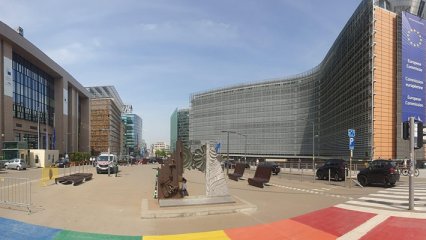
With a new Prime Minister, a looming deadline for Article 50 and the distinct chance of an early general election, Brexit remains at the forefront of our public and political debate. But a lot of what you hear is from partisans on different sides, more interested in selling their position than setting out what the plain facts of the matter might be. To help redress that, we offered the opportunity to pick the brains of some of the leading academic experts on this topic, during a night of question-and-answer in the heart of Guildford.
With expertise in economic, political and legal aspects of the UK's withdrawal from the European Union, we offered a response to all those burning questions that you've never felt you've gotten a straight answer to. And yes, sometimes that answer is going to be that we don't yet know. So, no pitching for your vote, no being evasive, no hand-waving: just straight down-the-line answers, to help you get a handle on all of it.
The panel included:
- Professor Simon Usherwood. Working in the Department of Politics, Simon's research has focused on the negotiations between the UK and EU, the practicalities of Brexit and the wider role of euroscepticism in the UK. He has been Deputy Director of the ESRC-funded "UK in a Changing Europe" programme, dedicated to sharing academic insights into the public debate
- Dr Eric Golson. A specialist in economic and trade warfare, Dr Eric Golson is currently the Deputy Head of Department and Senior Teaching Fellow in the School of Economics. He has provided economic consulting to both industry and governments on trade matters
- Dr Laura Chappell. Laura is Senior Lecturer in Politics, researching the EU's foreign and security policy, particularly focusing on its military operations and on its conceptualisation of its strategic role in the world
- Dr Noreen O'Meara. Noreen is a Senior Lecturer in Human Rights and European Law. Noreen's work has taken her into questions of the legal relationship between the UK and the EU, as well as the role played by European structures for Human Rights and how they relate to both EU and national legal systems.
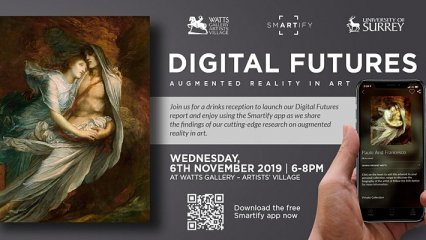
Augmented reality (AR) provides a dynamic approach to engaging with art in a time when the use of digital technologies across the arts and heritage sectors continues to grow at pace.
This event shared cutting-edge research that has been conducted in partnership between Watts Gallery, Smartify and the University of Surrey, exploring how augmented reality enriches visitor experiences, provides new opportunities to reach new audiences, and offers staff and volunteers alternative ways of engaging with visitors.
The audience were able to try the app for themselves and share the possibilities that AR brings to galleries and exhibition spaces.
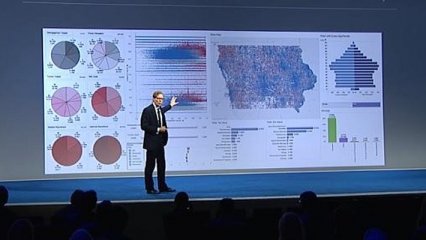
Recent years have seen immense technological advances in the fields of artificial intelligence (AI) and machine learning. Crucially, AI and machine learning rely on data. Our contemporary societies are also hugely data-driven: citizenship and democracy itself are now heavily reliant on data. Without data neither the modern state nor a modern economy would be able to function. As a result, AI is not just the domain of technologists, but a powerful tool in the hands of policy-makers, industry, the media, and citizens themselves.
The event looked clearly at the impact that AI is having on contemporary democracy, and the way in which the social sciences can help ensure machine learning is used intelligently to support, rather than degrade, key values and practices of democracy.
The development of AI poses many questions for the practice and theory of democracy. To what extent, for instance, should polling agencies and political parties be allowed access to large data sets in order to model an individual's voting intention? Should, in trying to prevent political radicalisation, security agencies use sophisticated machine learning to analyse social media accounts? To what extent, if any, can the democratic state become 'digitised' - and would this make it more accountable? Who oversees the aggregation and utilisation of large data sets? The social and political sciences have an important role to play in answering these and related questions.
Organised by the Department of Politics at the University of Surrey, our inter-disciplinary event brought together researchers from across political science in order to address how AI can be made safe for democracy. Using many real-life examples, such as the 2016 EU referendum campaigns, the event showcased the importance of political science for our understanding of the challenges posed by AI. Talks by Surrey academics included the following topics: human rights and AI; political campaigning and AI; the use of virtual environments in democracies; the rule of law and AI; and the implications of AI for gender stereotypes and beyond.

All expectant and new parents want to do the best for their children but doing so can prove a minefield when advice is flying in from every direction.
What does research tell us about the role of proliferating information and advice in the experience of early parenthood? And how can new parents navigate their way through while keeping pressures and anxieties under control?
Between health professionals, family, friends and social media, expectant and new parents can feel bombarded with advice on every topic from what to eat and drink in pregnancy to approaches to baby feeding, sleeping, changing, soothing and more. Good information is important, but the volume and range of advice can be over-whelming, leading sometimes to new parents losing confidence and contributing to post-natal anxiety. Perhaps it’s time to let go of the myth of the ‘perfect parent’?
As part of the annual Festival of Social Science, critically-acclaimed author Rebecca Asher, together with academics from the University of Surrey, hosted a lively discussion about how new parents can find their way through the sometimes conflicting advice and support they are offered, without sacrificing their own wellbeing. We also considered how parents can best support one another without inadvertently adding to such pressures.
The debate started with remarks from journalist and author, Rebecca Asher (author of Shattered and Man Up). Rebecca Asher’s book “Shattered” discusses the weight of expectations new mothers’ face, and how strongly gendered these are. The Surrey social scientists build on this from an academic perspective with Dr Ranjana Das discussing how pressures and ideals pervade early motherhood, including through social media communication. While such pressures typically affect mothers most acutely, Dr Paul Hodkinson considered the experiences of dads, and described how fathers can sometimes struggle amidst pressure and advice to be steadfast, solid ‘rocks’ for their partners. Finally Dr Jo Blanden challenged the source of some established recommendations and asked if all these instructions are really necessary.
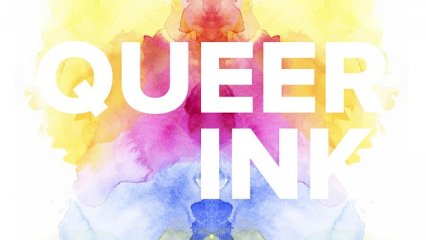
When you look at an ink blot what do you see? What does it mean? Do you think your sexuality can be detected?
In this workshop, participants had the opportunity to learn about the messy history of how Rorschach ink blots were used to detect 'homosexuality' back when it was considered a mental illness. But they also discovered just how these odd inky images were also involved in some aspects of gay liberation. Following a talk by Katherine Hubbard about this queer feminist history and having a go at the original Rorschach ink blot test themselves, the audience were then able to make their own ink blots. By using screen printing they could make and interpret their own ink blots and leave with tote bags, tea towels or posters as souvenirs.
